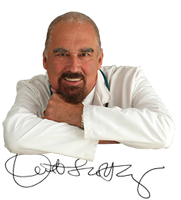When was the last time that your doctor or healthcare provider asked: “How’s your love life?” Or questioned the details even more intimately with telling questions like, “Do you feel truly loved?” or “When was the last time your spouse/partner said I love you?” never mind questions like, “Is sex between you and your loved one deeply fulfilling and a profound joy for both of you, or just a quick bang?”
There is mounting scientific evidence that loneliness kills, whereas love and intimacy heals and saves lives. Yet doctors never ask about it (to my knowledge). The issue is just ignored. Yet…
In the words of top doctor and author Dean Ornish MD: I am not aware of any other factors in medicine—not diet, not smoking, not exercise, not stress, not genetics, not drugs, not surgery—that has a greater impact on our quality of life, incidence of illness, and premature death from all causes.
He goes on to say: Love and intimacy are at the root of what makes us sick and what makes us well, what causes sadness and what brings happiness, what makes us suffer and what leads to healing. If a new drug had the same impact, virtually every doctor in the country would be recommending it for their patients.1
Trouble is, of course, you can’t SELL love and intimacy. No profits, so we don’t even talk about it!
The famous balcony scene from Franco Zeffirelli’s Romeo and Juliet (1968)
[Please don’t write and tell me Romeo and Juliet didn’t live very long!]
One of the best “proofs” of the value of feeling loved came from a famous study of 10,000 male heart patients in Israel in 1976. Researchers found that patients were far less likely to have dangerous heart symptoms if they could answer “Yes!” to the simple question: does your wife show you she loves you? 2
A 1999 study published in the medical journal Neurology showed that stable married individuals were far less likely to develop Alzheimer’s than those who were not. It even showed that those who were divorced or widowed were protected to some degree, proving the old adage that it is better to have loved and lost than never to have loved at all (Alfred Lord Tennyson’s poem In Memoriam, 1850).
The moral for those who want to live longer and avoid the degenerative brain changes of aging is get plenty of love. Now we all know the irony that as time goes by, the magic of romantic love tends to fade. But core love never goes away, indeed it seems to grow as the years pass. What seems to be important is the expression of love in our lives. You may have lived with the same person for many years and lost the habit of saying “I love you”.
The idea of starting to use these words once more may seem scary. But if you can revive the habit, you’ll live longer. That’s a pretty positive transaction; a far better deal than any you could get on the stock exchange!
And What About Physical Intimacy? (Sex)
That’s part of the picture too. Most people assume that sex after a certain age is “bad for the heart” and that if you have already had a heart attack, you must abstain for safety’s sake.
WRONG!
The new study published Sept. 23, 2020, in the European Journal of Preventive Cardiology suggests that sex and intimacy is the quickest way back to health and makes you likely to live significantly longer. Again, this research is from Israel (am I missing something here?)
“Sexuality and sexual activity are markers of well-being,” said Yariv Gerber, head of the School of Public Health at Tel Aviv University. “Resumption of sexual activity soon after a heart attack may be a part of one’s self-perception as a healthy, functioning, young and energetic person. This may lead to a healthier lifestyle generally.”
In the study, Gerber’s team collected data on nearly 500 sexually active people aged 65 or under who were hospitalized for a heart attack in either 1992 or 1993.
During a median follow-up of 22 years, 43% of the patients died. But the study found that those who’d maintained or increased the frequency of sex during the first six months after a heart attack had 35% lower risk of death, compared with those who had not.
The survival benefit of having more sex appeared tied to reductions in non-cardiovascular deaths — for example, fewer deaths tied to cancer — the researchers noted.
Of course there is an old medical saying that association doesn’t mean causation.
But while they are figuring it all out, GO FOR IT GUYS! (I mean guys in the sense of people, folks, nothing gender!)
What Can You Do?
There is an old line: fake it till you make it. Even if you don’t feel much love, create it anyway and real love will start to emerge. How can you do that?
- You can sing happy songs and love songs, songs of the heart
- You can think about things you really love (not necessarily people)
- Start to show more compassion and care for others and it will come back to you
- If you are not already in the habit, use the word LOVE as often as you can. To say it out loud gives it a strange power that exceeds merely thinking about it
Finally, if your key life relationship has gone sour, what can you do? Well, you loved the person once. You had better try again. Just to hold in your mind endless bitterness and criticism of your life partner will shorten your life as sure as drink and smoking. Bitterness kills. Try at least to acknowledge more positive things about the significant other. To hold them in contempt diminishes you and may cause you to feel stupid or paltry.
Remember, you get back what you give out.
If the relationship has become so sick as to be destructive, you must correct it or get out. It is always harder if only one of the two is honest and striving to make things work better. Just don’t ignore it any longer. Hurt, suffering and strife (all manifestations of stress) will raise your cortisol levels and shorten your life.
For lots more information on living longer, living well, being happy and zestful, till your last day on earth, read my book: Get Healthy For Your Next 100 Years. You can read more about it here…
To love and a sense of humor,

Prof. Keith Scott-Mumby
References:
1. Dean Ornish, Love and Survival, HarperCollins, New York, 1998, p. 3.
2. Isr J Med Sci 12: 1194-1206 (1976)


